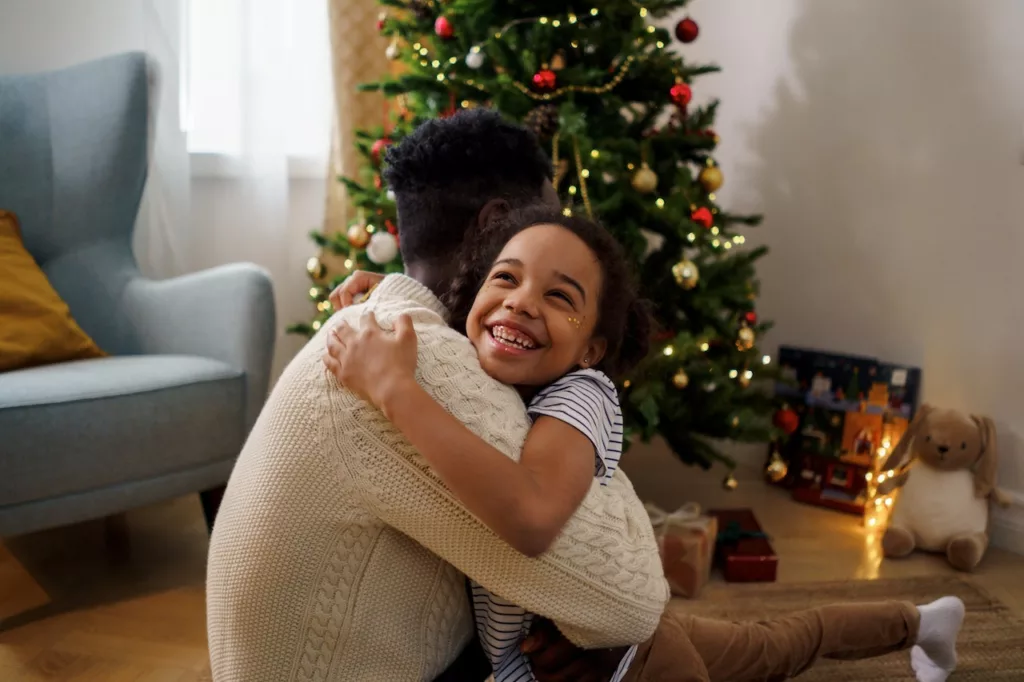Mindfulness for a Joyful and Stress-Free Holiday Season

The holiday season often brings excitement and joy, but also stress, busyness, expectations and obligations. Practicing mindfulness can help you stay centered amidst the chaos, build resilience, reduce anxiety and overwhelm, strengthen connections, and cultivate gratitude. This comprehensive guide explores mindfulness practices to embrace the true spirit of the holidays.
Introduction
The holidays are meant to be a time of celebration, togetherness and gratitude. However, many people feel exhausted, stressed and disconnected during this season due to:
- Pressure to buy gifts, decorate, entertain, travel and meet unrealistic expectations
- Increased social obligations and family drama
- Overindulgence in food and drinks
- Disruption in normal routines
- Financial pressures
- Grief over lost loved ones
- Reflection on past issues
This leads to stress, loneliness, anxiety, depression and physical illnesses.
Mindfulness – purposeful, non-judgmental attention to the present moment – can help manage these challenges. Research shows mindfulness reduces stress, improves emotional regulation, enhances relationships, boosts immunity and promotes overall wellbeing.
This guide shares tips to practice mindfulness during the holidays for a more joyful, meaningful and connected season.
Benefits of Mindfulness During the Holidays
Incorporating mindfulness practices into your holiday season can provide the following scientifically-proven benefits:
- Reduces stress and anxiety: Mindfulness lowers emotional reactivity and perceived stress. Practices like mindful breathing and meditation activate relaxation responses, reducing feelings of being overwhelmed.
- Enhances emotional regulation: Being present with emotions in a non-judgmental way leads to more balanced emotional states and constructive responses. This prevents impulsive reactions.
- Improves sleep: Mindfulness-based practices have been found effective for combating insomnia and improving sleep quality, especially helpful during hectic holidays.
- Boosts immune system: Lower stress from mindfulness practices increases antibodies and white blood cells, strengthening the body’s defenses during cold and flu season.
- Heightens focus and productivity: Mindfulness improves working memory, attention span and mental clarity, allowing you to manage tasks and responsibilities more efficiently.
- Strengthens relationships: Mindful communication fosters understanding, empathy and intimacy with others. It prevents conflicts and promotes compassion.
- Cultivates gratitude: Focusing on the present helps you appreciate positive experiences and relationships. Practices like gratitude journaling enhance wellbeing.
In summary, incorporating mindfulness into your holiday season can lead to numerous benefits that help you meaningfully connect with yourself and loved ones.
Ways to Be Mindful During the Holidays
Here are some simple, practical ways to bring mindfulness into your holiday season:
1. Mindful Breathing
- Set aside 5 minutes daily to sit quietly and focus on your breath. Observe each inhale and exhale.
- If your mind wanders, gently return focus to your breath.
- Feel the belly rise and fall with each breath. This anchors you in the present.
2. Mindful Eating
- When eating holiday treats, pause to notice flavors, textures, scents and presentation. Chew slowly.
- Listen to your body’s signals of fullness and hunger. Stop eating before feeling too full.
- Avoid distractions. Silence phones, turn off screens and focus fully on the eating experience.
3. Mindful Activities
- Find routine tasks that already ground you in the moment, like walking the dog, washing dishes, brushing your teeth. Shift focus to the activity.
- Engage your senses fully. Notice sights, sounds, smells, textures.
- Let distracting thoughts go and bring attention back to the activity.
4. Mindful Movement
- Try gentle, slow exercises like yoga, qigong or tai chi which connect the mind and body.
- Focus on coordinating breath with movement. Feel the body’s sensations without judgment.
- Release tension and stimulate relaxation responses. Even 10 minutes daily provides benefits.
5. Gratitude Practice
- Keep a gratitude journal. Daily, write down 5 things you feel grateful for like relationships, nature, health.
- Share gratitude with others. Send thank you notes, express appreciation to loved ones.
- Take time to reflect on the positive moments and things that went well each day.
6. Limit Multitasking
- Set an intention to do one thing at a time with full attention. For instance, silencing devices when conversing.
- Schedule focused time for tasks without distractions. Avoid context-switching which increases stress.
- When you catch your mind wandering, gently return focus to the activity.
7. Practice Compassion
- Treat yourself with care, patience and understanding. Release judgment about your perceived shortcomings.
- Prioritize self-care like healthy meals, adequate rest, stress management. Don’t neglect your needs.
- Also extend compassion to loved ones. Let go of pet peeves. See things from their perspective.
8. Manage Expectations
- Identify unrealistic standards you set for holiday tasks, events and yourself. Challenge “shoulds”.
- Ask for help when you need it. Delegate tasks if you feel overwhelmed.
- Remember perfection is unattainable. Focus on meaningful connections over impeccable appearances.
Morning and Evening Routines
Establishing mindfulness-based morning and evening routines can provide structure and a sense of calm to start and end each day.
Mindful Morning Routine
- Wake up 15 minutes earlier for mindfulness practices.
- While still in bed, take 5 deep breaths. Observe the rise and fall of your belly.
- Express gratitude for the new day.
- Stretch or engage in light yoga to bring awareness to your body.
- Sit quietly for 5 minutes, focusing on your breath.
- Savor your morning coffee or breakfast. Eat slowly without distractions.
- Set your intention or purpose for the day.
Mindful Evening Routine
- Unplug electronic devices 30 minutes before bedtime.
- Take time to relax before sleep, like reading, gentle stretching or listening to soothing music.
- Reflect on positive moments from the day. Journal things you are grateful for.
- Do a quick body scan, noticing areas of tension and releasing them.
- Practice deep breathing as you settle into bed, focusing on the sensation of breath.
Establishing these consistent routines boosts mindfulness, improves sleep quality, reduces anxiety about the next day’s tasks and creates a sense of calm.
Mindfully Connecting with Loved Ones
The essence of the holiday season is connecting and spending quality time with loved ones. However, family gatherings can sometimes lead to tensions, disagreements and stress.
Practicing mindful communication and presence with family and friends can deepen bonds:
- Practice active listening without judgment. Fully concentrate on what the other person expresses. Clarify their perspective by asking thoughtful questions.
- Express gratitude and affection to important people in your life. Share fond memories, exchange thoughtful gifts, write heartfelt cards.
- Offer your full presence and attention during conversations. Don’t multi-task. Make eye contact. Refrain from checking devices.
- Let go of criticisms, grudges and annoying pet peeves. Approach loved ones with patience, empathy and compassion.
- Have realistic expectations of family interactions. Release idealized notions of the “perfect” gathering. Allow space for each person.
- Take breaks from group activities and socializing when needed. Recharge with brief periods of quiet solitude.
- If tensions arise, pause and take a few deep breaths before responding. Stress can impair communications.
Remember that the greatest gift during the holidays is your presence, attention and deep connection with loved ones. By practicing mindful relating, you can enhance the joy, understanding and meaning shared with others.
Mindful Self-Care and Stress Management
The increased obligations and pressures during the holidays can lead to stress, tension and exhaustion if you don’t take time for self-care. Prioritizing your needs through mindfulness is essential.
- Set boundaries politely decline events overwhelming your bandwidth. Ask for support instead of taking everything on.
- Take breaks from decorating, cooking, shopping. Even brief rests recharge your energy and tolerance.
- Get outdoors in nature which restores mental resources drained by holiday busyness. Unplug. Immerse your senses.
- Make time to move with yoga, walking, stretching. This releases muscular tension and stimulates mood-boosting endorphins.
- Hydrate and nourish with water, fruits, vegetables, whole grains and lean proteins. Avoid overindulging in sweets and alcohol.
- Get adequate rest by setting a consistent bedtime. Sleep deprivation exacerbates stress. Protect your sleep needs.
- Process feelings like grief, anger or sadness through journaling, talking with friends or joining a support group. Don’t suppress difficult emotions.
- Limit social media comparisons and messages promoting exhausting holiday ideals. Instead, focus on authentic connections.
- Seek professional help if feeling persistently sad, anxious or overwhelmed. Therapists help develop resilience and coping strategies.
By honoring your own needs with self-care and healthy boundaries, you can avoid depletion and resentfulness during the holidays. Mindfulness allows you to act from a place of wisdom and compassion towards yourself and others.
Mindful Holidays Traditions
Infusing your holiday traditions with mindfulness is a way to reconnect with the purpose behind annual rituals. It enhances their meaning, joy and sacred nature.
Mindful Decorating
- Select decorations that are meaningful to you, not just what’s trendy or expected. Display sentimental, handmade or nature-based items.
- While decorating, listen to favorite nostalgic or classical holiday music.
- Slow down and savor the decorating process. Don’t rush. Allow creative inspiration to flow.
- Incorporate greenery and seasonal elements that stimulate your senses like fresh garland, pine cones, cinnamon sticks.
- Declutter before decorating so décor has space to shine. Remove non-essential items.
Mindful Baking and Cooking
- Enjoy cooking aromas like gingerbread, cinnamon and nutmeg which evoke nostalgia.
- Cook in batches to avoid last-minute pressures. Freeze cookie dough or pre-assemble ingredients.
- Savor the textures and flavors as you sample holiday dishes. Avoid mindless snacking as you cook.
- Play festive music that sparks joy and sing or dance along as you bake.
- Gift homemade treats to share warmth and joy with others. Include recipient favorites.
Mindful Gift-Giving
- Focus on selecting meaningful, useful gifts that uplift recipients based on their values and interests. Avoid excessive spending.
- Thoughtfully wrap and present gifts to create a pleasant sensory experience when opened. Use decorative holiday paper, ribbons, pinecones.
- Express love and appreciation when giving gifts. Share hopes that the item enhances the recipient’s life.
- Savor the joy of children opening gifts. Be present as they discover each item instead of documenting every moment.
- Spend time making personal greeting cards for loved ones. Write heartfelt messages.
Mindful Gatherings
- Send invitations early, make menus and prepare guest rooms to prevent last-minute scrambling.
- Greet each guest warmly. Make introductions if needed so no one feels excluded.
- Turn off televisions and devices during gatherings to enable deeper conversations.
- Display nostalgic photos to spark joyful connections and storytelling.
- Take time to express gratitude for loved ones at gatherings. Share happy memories from past holidays together.
Children and Mindfulness
Teaching children mindfulness practices can help them manage holiday excitement, strengthen their attention, and appreciate the deeper meaning of the season and enjoy mindful holidays.
- Do breathing exercises – have them imagine filling their bellies like balloons on the inhale and deflating on the exhale. Make it fun by adding sounds.
- Go on sensory nature walks – encourage them to tune into sights, textures, sounds and smells. Lift and observe pine needles, acorns, snowflakes, icicles.
- Ask thought-provoking questions – e.g. “What are you most excited about?”, “What are you grateful for?”
- Have them help cook and bake – teach measuring ingredients, mindfulness during mixing and decorating, safe knife skills.
- Declutter unused toys together and donate to charity so they appreciate what they have.
- Start a gratitude journal listing bedtime things they felt thankful for that day like friends, pets, favorite meal.
- Establish screen-free times during gatherings and outings to enable fuller engagement with activities and conversations.
- Do random acts of kindness like making cards for nursing home residents, feeding birds, helping with chores without being asked.
- Introduce mindful movement like yoga poses during down time. Guide standing, seated and reclined poses connected with breath.
Practicing mindfulness with children during the holidays helps them manage expectations, cherish meaningful moments and nurtures compassion.
Avoiding Holiday Overindulgences through Mindfulness
The holidays provide abundant opportunities for overindulging in food, alcohol and spending. This often leads to unhealthy weight gain, financial woes and guilt or shame.
Mindful approaches can help foster moderation, wisdom and self-care:
- Eat slowly and mindfully – pause between bites. Savor flavors. Notice when satisfied. Stop before feeling full.
- Survey options mindfully – scan the buffet or table. Carefully choose highest priority items in proper portions. Pass on excess.
- Limit high-calorie pairings – pick either the pie or whipped cream, not both. Avoid too many combinations of starch, sugar and fat in one sitting.
- Alternate with healthy options – select lower calorie dishes like veggies and lean proteins to balance indulgent items.
- Avoid mindless snacking while cooking and socializing. Find non-eating activities to stay occupied.
- Distance from temptation – politely decline pushy hosts. Remove yourself from settings where you feel pressured and overdo it.
- Set a budget – determine an affordable holiday spending amount ahead of time based on your finances. Avoid splurging on gifts and décor outside your means.
- Check your motives – are you buying gifts out of obligation versus a sincere desire to express care? Ensure spending aligns with your values.
Infusing mindful awareness into all holiday activities allows you to make choices aligned with your health and priorities versus regretful overindulgence.
Starting a Mindful Holidays Routine
Begin cultivating mindfulness during this holiday season by taking these small, easy steps:
- Upon waking each morning, take 5 slow deep breaths before rising from bed. Notice the sensations.
- Add a mindfulness practice first thing in your morning – meditation, journaling, stretching. Start your day centered.
- Throughout the day take “mini-mindfulness breaks” – step outside for a few deep breaths, pause and observe your senses in the middle of activities.
- Try eating one meal mindfully each day. Turn off devices, savor each bite, chew thoroughly, pause between bites.
- Before holiday events, set an intention – e.g. “I will be fully present and listening when others speak.” Repeat if you feel distracted.
- Unplug 30 minutes before bed. Spend time quietly stretching, reflecting on the day, preparing for restful sleep.
- Start small! Brief moments of mindfulness consistently applied can compound over time into greater peace, clarity and joy.
As mindfulness practices become habit, you’ll feel calmer, more resilient and able to truly celebrate the meaning of the season.
Frequently Asked Questions on Mindful Holidays
What are some quick mindfulness practices for when I feel stressed or overwhelmed during the holidays?
If feeling stressed or overwhelmed, try a brief mindfulness practice: Take 5 deep breaths, focusing on the sensations of breathing. Do a quick body scan, noticing areas of tension. Drink a glass of water slowly. Take a short walk and observe your surroundings. Write down 3 things you’re grateful for.
How do I mindfully connect with difficult relatives during the holidays?
Connecting mindfully with challenging relatives involves extending empathy, avoiding reactive responses, and finding the humanity within them. Listen attentively, ask thoughtful questions, find common ground, and express care and concern while maintaining healthy boundaries.
How can I get my family members to be more mindful during the holidays instead of immersed in devices and distractions?
Lead by example. Initiate conversations, games and activities disconnected from devices. Suggest device-free times or communal charging station. Share benefits of being present. But don’t mandate changes. Allow space for each person while remaining mindful yourself.
Sometimes the grief and loss of deceased loved ones feels heightened during the holidays. What’s a mindful approach to grief?
Allow yourself to fully feel and process the grief, cry if you need to. Share positive memories of the deceased. Do something symbolic in their honor. Cherish time with present loved ones. Seek counseling or a bereavement group for support if grief persists.
Introverts can mindfully recharge by scheduling breaks between events, meditating, taking nature walks alone, and saying no to optional gatherings without guilt. After socializing, allow quiet time to reflect and restore energy. Set boundaries around your social limits.
What type of professional help is advisable if someone is feeling very sad or anxious during the holidays?
If struggling with prolonged depression or anxiety during the holidays, seek help from a licensed therapist, psychologist or psychiatrist. They can assess if medication or counseling would be beneficial, and provide tools to better manage challenging emotions.
In summary, intentionally integrating mindfulness practices into your holiday season activities and routines can profoundly improve your overall wellbeing, relationships and ability to manage stress. By fully experiencing each moment, you can unlock greater meaning, connection, joy and harmony during the holidays. Wishing you peace, calm and happiness






